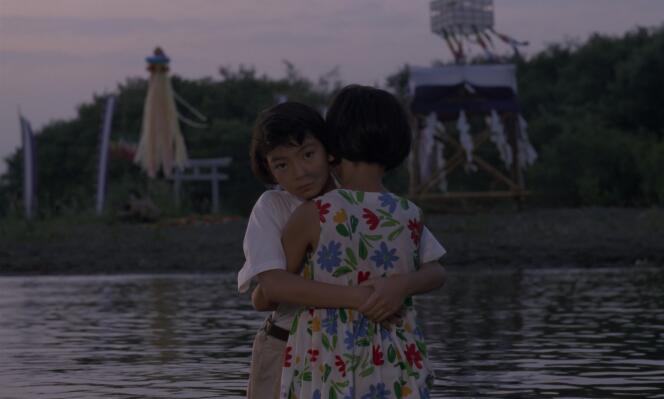Same pensive look, illuminated by a sparkling voice: around thirty years apart, we find the face of Tomoko Tabata, the teenage heroine of Moving (1993), by Shinji Somai (1948-2001), a pearl of Japanese cinema still unpublished in France. From Tokyo, the actress, born in 1980, waves to us through the screen, short hair over a round-neck sweater. In Moving, she played Renko, a lively kid whose world collapses, the day after her parents’ divorce. Here she spends her time running from one house to another, crossing Kyoto during stunning sequence shots, as if to try the impossible and connect two lives that are now separated, two homes whose architecture the camera sublimates.
The filming promised to be sporty, it was also mentally taxing, says the actress, who filmed among others with Takashi Miike (Sabu2002), Hirokazu Kore-eda (Hannah2006), Yoji Yamada (The Handmaid and the Samurai2004), while pursuing a career in the theater.
Shinji Somai auditioned more than 7,000 girls for the role. How did you meet him?
I grew up in the Gion district of Kyoto, where my parents ran a traditional restaurant. I was 12 years old at the time of filming. My mother was geiko [geisha experte de son art à Kyoto], I thought I would follow in his footsteps and learn different arts, traditional dances, etc. One day, I was having a drink in one of these cafes run by geikos. One of them told us that Shinji Somai was looking for a young girl for a film. I barely knew cinema. Somai gave me a casting call and, very quickly, he asked me to run! Three months before filming, which took place in the summer, I took boxing lessons and learned to practice my voice.
The filmmaker had a reputation for requiring a lot of takes. How did the filming go?
I had to leave my parents for a month and a half because the filmmaker wanted the whole crew to be together. It was hard. At first, I cried every day. Sometimes I couldn’t put on my costume. Sometimes I hid in a corner, another time I had to leave the set. But my parents told me: “When you commit, you have to follow through. »
We repeated a lot, twenty, thirty times the same scene, and I didn’t understand what Somai wanted, because he never explained anything. After each take, he would just say “again,” and when he had what he wanted, he would say “OK.” But he never paid a compliment, he never had a reassuring word. He didn’t call me by my first name, but he said “little one” Or tako which means “octopus”. He was always walking around with a sword on the set, and I always told myself that he was going to end up approaching me…
You have 40% of this article left to read. The rest is reserved for subscribers.
